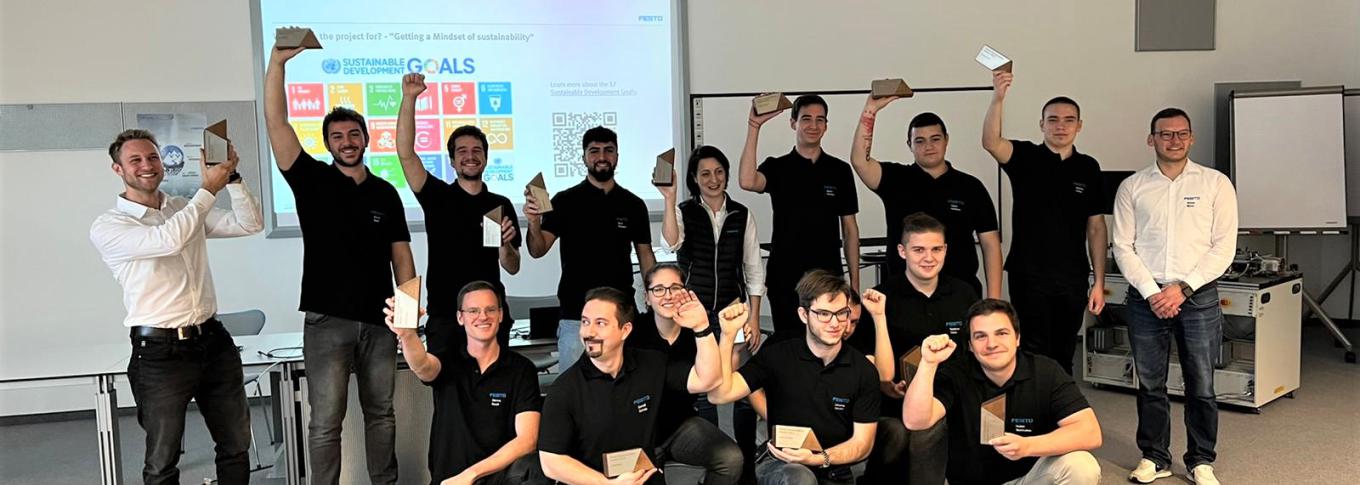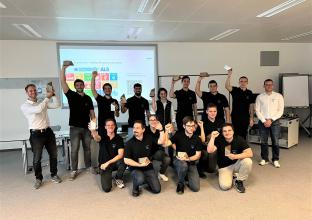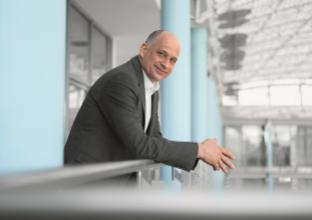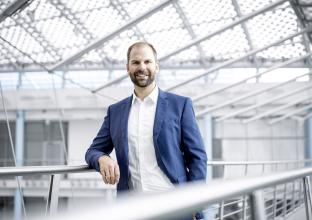
Festo selects winners of the 1st Global Festo Sustainability Award
On 17 November, the time had come: the winning trophies were presented to the six winning teams by the fourth generation of the Stoll family and several Festo board members during the festivities at the Festo Training Centre in Esslingen/Berkheim.
The sustainability competition took place for the first time and was initiated by the young representatives of the owner family Stoll together with the Festo Didactic training.
"The topic of sustainability is becoming increasingly important for the young generation. In addition, it is becoming increasingly important that social responsibility is also taken on in industry. We want the young Festo employees worldwide to be able to develop their creativity and full potential for the topic of sustainability and for Festo to benefit from their ideas and solutions," says Dr Oliver Niese, Member of the Management Board of Festo Didactic.
The climate and the world are changing. More than ever, role models are needed to lead the change and turn the crisis into an opportunity. Festo training centres can help shape this change and pursue their own projects and goals based on the United Nations' 17 Sustainable Development Goals.
And with success: the winning teams from the six training centres Berkheim, Rohrbach, Budapest, Jinan, Sofia and Bangalore convinced the jury with their innovative solutions.
Sustainability in agriculture
The task was: What role does sustainability play in agriculture and how can agriculture be made sustainable with Festo products? For six months, a total of 28 teams from all six Festo training centres in Germany and abroad worked on exciting projects.
"Agriculture is one of many areas in which we, as an automation company, make an important contribution to sustainability. Through our technologies, we enable the resource-efficient supply of a growing world population - one of the central challenges of our time," says Christian Österle, Vice President Sustainability at Festo.
The winning projects
The winning team from Esslingen developed a cooperative pollinator for bee-poor areas. By using hollow chamber nets, the pollen of the male plants can be whirled up with a pneumatic control via a compressed air pulse and then collected via a vacuum. The full net can then be spread over the desired fields and the pollen can be released onto the plants to be pollinated using compressed air.
The winning team from Budapest developed the idea of the "Egg grinder", the sustainable processing of eggshells into powder. Eggshells are one of the most common forms of food waste. Calcium carbonate is essential for healthy bones and teeth as, together with phosphorus, it gives these structures strength and shape. The calcium carbonate found in eggshells can be used for animal feed, as a substitute for some fertilisers or even in the pharmaceutical industry as a dietary supplement.
The team from Rohrbach came up with the idea of a Vertical Farm by using natural light. The Bangalore team took a similar approach with their Sustainable Vertical Farm project using piezoelectronics and a solar panel, as did the winning team from Jinan, who developed an app-controlled vertical farm as a solution. The team from Sofia developed automated seed planting with Festo technology.
Some of the first prototypes have already been implemented in the training centres. Next year, the success of this year's competition will be followed up with further projects.
费斯托 (Festo)是一家全球性的独立的家族企业,总部位于德国埃斯林根。自成立以来,Festo在工业自动化技术和技术教育方面制定标准,从而为环境、经济和社会的可持续发展做出贡献。公司为超过35个行业的30万家工厂和过程自动化客户提供气动和电驱动自动化技术解决方案,其中生命科学和实验室自动化业务受到越来越多的关注。Festo产品和服务遍布176个国家。2024年,费斯托在全球61个国家的250多个分支机构拥有约20600名员工,实现销售额34.5亿欧元。每年约8%的销售额用于研发。在这家学习型企业,1.5%的销售额用于基础和进一步培训。Festo 教学培训 (Didactic SE) 是全球领先的技术教育和培训供应商,为全球客户提供工业环境中全面的数字化和常规学习解决方案。



